Local historians are hoping to shine a spotlight on several lost and forgotten landmarks in Downtown Athens. They hope this effort helps preserve and communicate some of the rich and complex history of African Americans in the Classic City.
In November, the Athens Downtown Development Authority, in collaboration with the Lyndon House Arts Center and AARP, launched the African American Heritage Pathway, a walking path lined with landmarks pointing out historically significant African American points of interest downtown.
Why It’s Newsworthy: The Athens Downtown Development Authority is highlighting lost and forgotten African-American communities and history in Downtown Athens.Didi Dunphy, program and staff supervisor at the Lyndon House Arts Center, has worked for Athens-Clarke County for eight and a half years.
She has seen many cultural tourist elements, such as the Greenway Trail and Athens Music Walk of Fame, implemented in downtown Athens to provide both locals and visitors with “beauty, color, pride and a sense of place.”
In 2021, as Dunphy was in the middle of creating a new inclusive African American-centered exhibit for the Ware-Lyndon House museum, when the Athens Downtown Development Authority was rewarded the AARP Community Challenge grant to fund a new community project.
“You know, there’s a whole other network of ways to experience [Athens],” Dunphy says. “With this grant, let’s add an African American Heritage pathway here and talk about the landscape through the stories of Athens’ black Americans.”
To launch this initiative, Dunphy marked the beginning of the pathway close to home, the Ware-Lyndon House.
The Ware-Lyndon House
As the beginning of the African American Heritage Pathway, the Ware-Lyndon house symbolizes the beginning of the African-American experience in Athens during slavery.
The two-story antebellum home, now adjoined to the Lyndon House Art Center, was the home for the families of Dr. Edward Ware and Dr. Edward Lyndon before and after the Civil War, respectively.
“During the era of this house… circa 1856…Athens is not what it is today,” Dunphy says. “it was plantation fields. The [Oconee] River… was a very active river that transported goods and humans up and down that river.”
Through a three-year research effort, Dunphy and interns at the Ware-Lyndon House uncovered the stories of the enslaved owned by the Ware family and domestic servants hired by the Lyndons after the Civil War. These findings have been put together into a new exhibit in the museum telling the stories of two African American descendants linked to the Ware family. Through this exhibit and continued research, Dunphy hopes to “provide the full story of this house.”
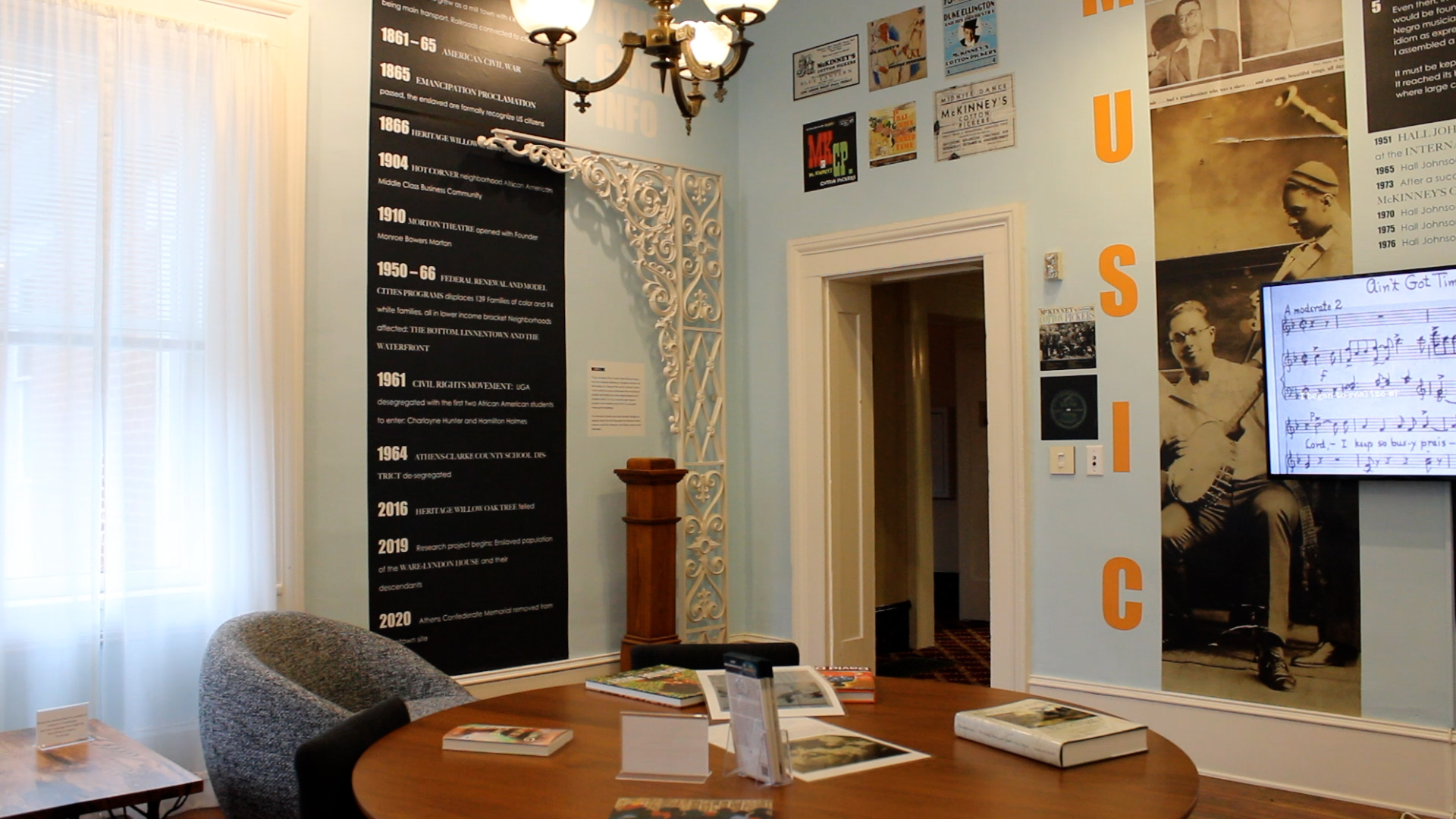
Lost Neighborhoods
As a visitor leaves the Ware-Lyndon house, they would walk through what used to be the old Lickskillet neighborhood, according to a marker along the pathway. However, anyone who walks through the area today without reading the sign would only notice parking lots and the Hotel Indigo.
Just a block away from the Ware-Lyndon house, along College Avenue where the Bethel Midtown Village apartment complex sits, was another lost community, called “the Bottoms.” Though you may see brick apartments today, if you stood in the same location 50 years ago, you would find small wooden homes, and “vibrant communities of color with strong artistic, analytic, successful families,” as the ADDA website describes it.
Communities such as the Bottoms, Lickskillet, and more well-known areas such as Linnentown were all communities of poor African American Athenians that “were crushed by the Federal Rehabilitation Act,” Dunphy explains.
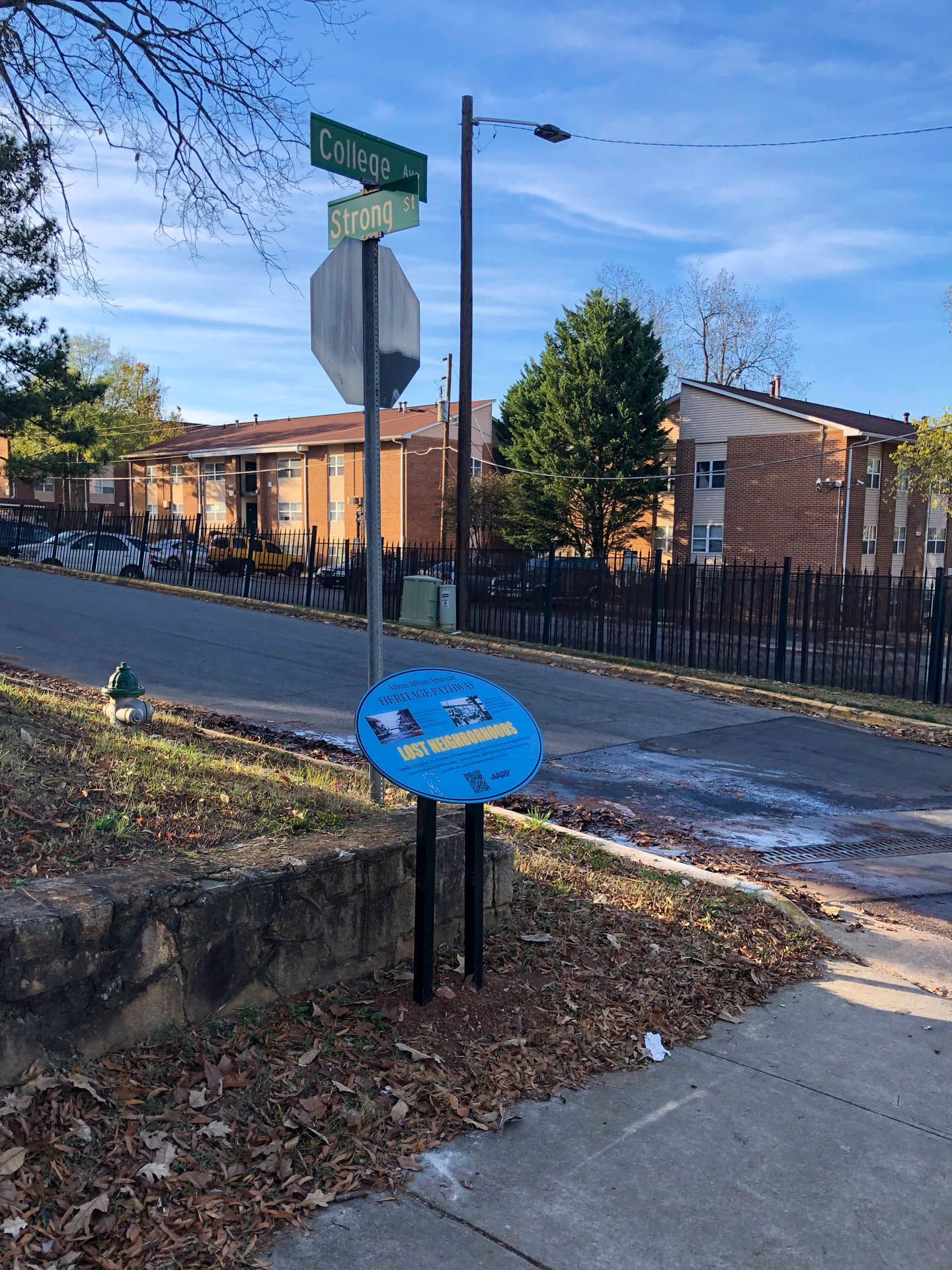
Though these neighborhoods are physically gone, Dunphy emphasizes the importance of not forgetting these communities or the people who lived there.
Currently, the only known residents of these lost neighborhoods are the famous such as musician Neal Pattman, according to the ADDA website. However, for many behind the Athens African American Heritage Pathway, the goal is not just to remember the famous but also “the shopkeepers, the launderers,.. grocers, and … these little people,” Dunphy said.
First African Methodist Episcopal Church
Not all elements of Athens early African American community are gone. At the corner of North Hull street and West Dougherty Street stands First African Methodist Episcopal Church (First AME).
Carl Britton, a member of First AME since 1969, is a part of the church’s history ministry and aims to preserve the legacy of the African American congregation that predates emancipation.
The current building that houses First AME was constructed in 1916, but a sizable black Christian community has been recorded in Athens as early as 1844, according to Britton.
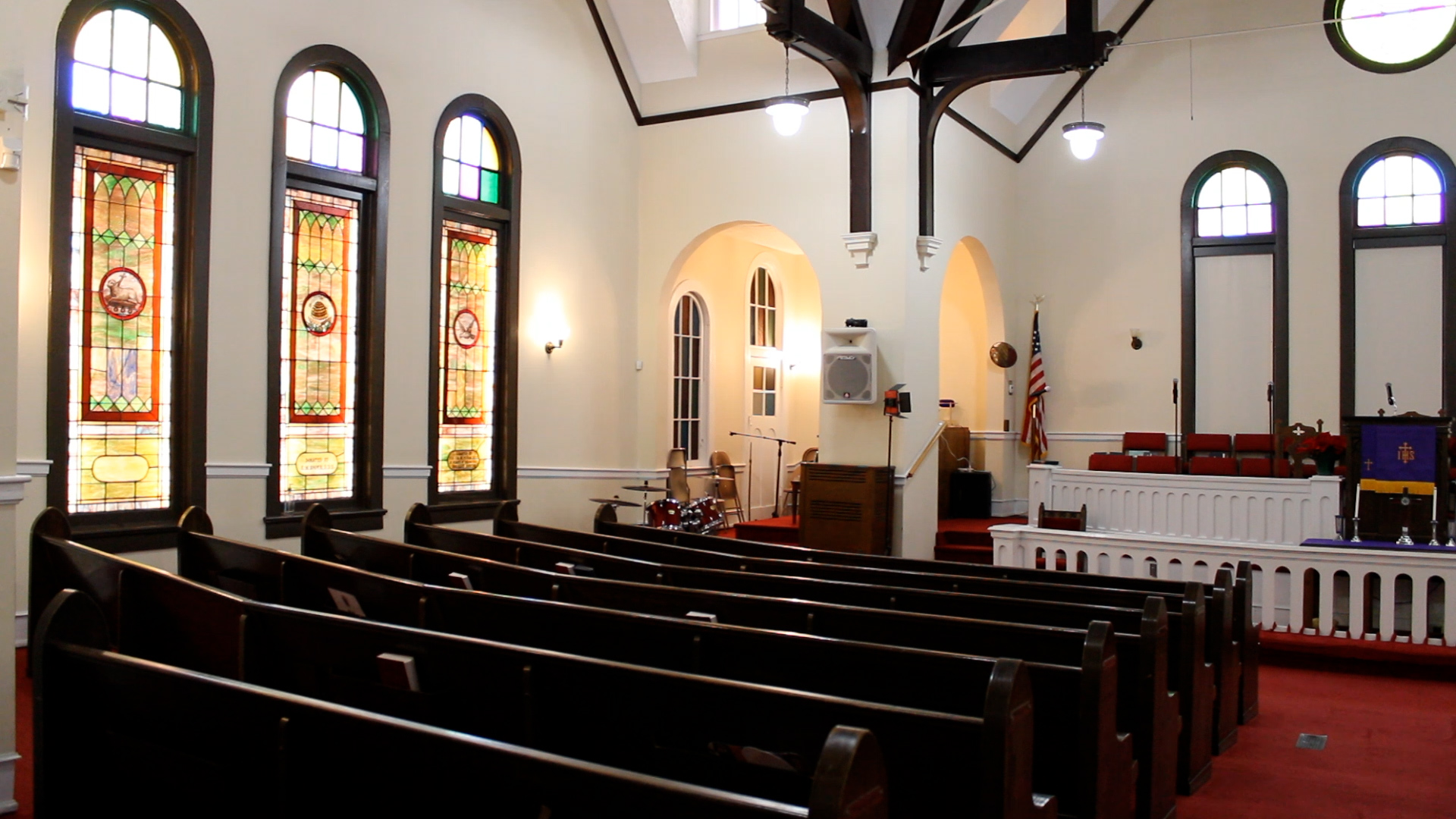
“Most of the slave owners, especially in this area, …required their slaves to go to church with them,” Britton said.
The size of the enslaved population grew to around 97 people, large enough to attract the attention of prominent AME preacher Henry McNeal Turner who led a revival in Athens, according to Britton.
Turner led the newly emancipated black community to join the AME denomination and founded Pierce Chapel, initially named for the white minister who helped the freedmen start the church in 1865, according to Britton.
Following the Civil War, First AME, at the time named Pierce Chapel, hosted the first school for African Americans in Athens. Along with educating both children and adults, the church served as a gathering place for black Athenians to socialize, gather during distressing times or spread news.
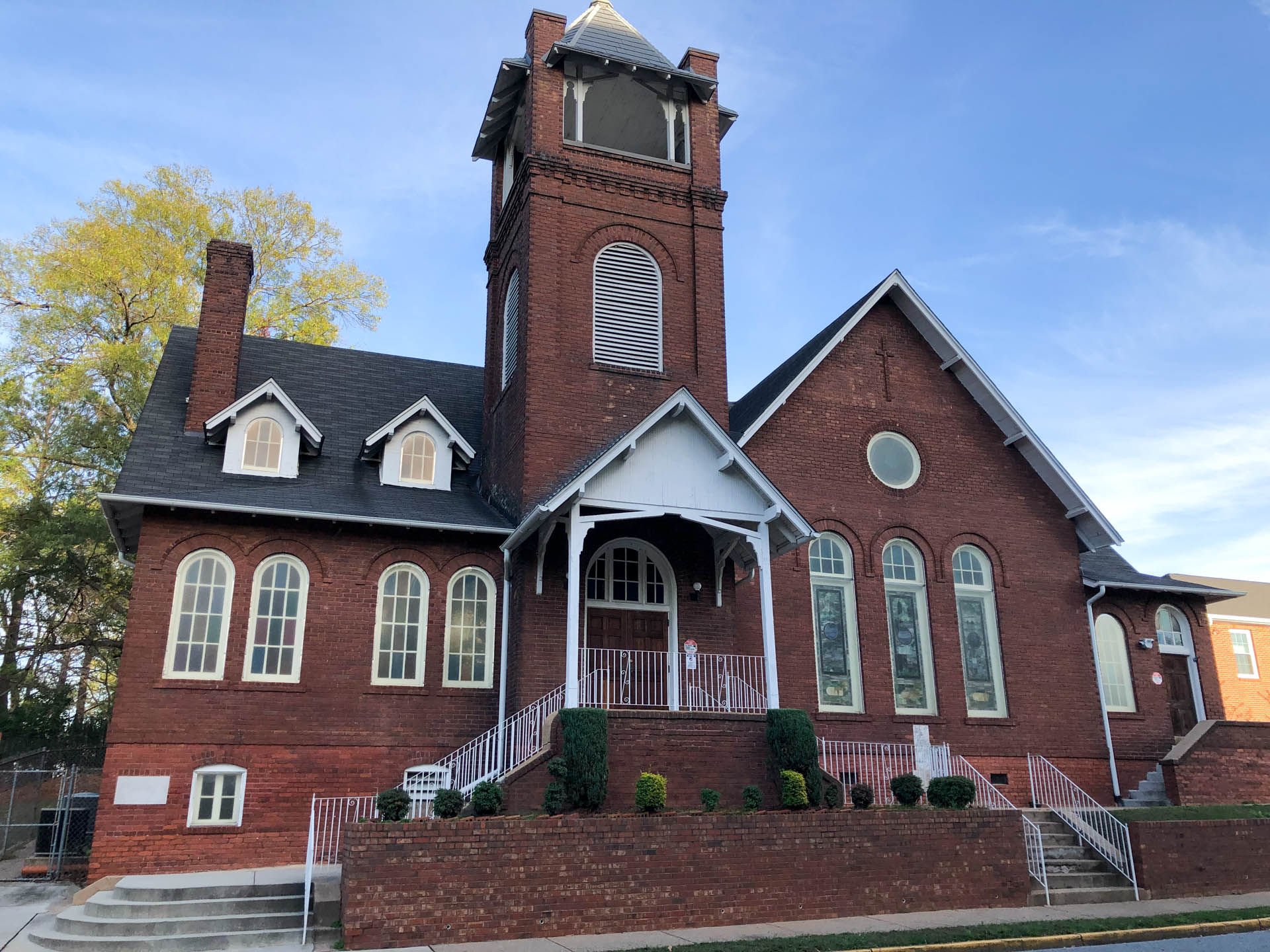
“A long time ago, Georgia was full of black folks, on the farms and plantations, cotton fields, everywhere,” Britton said. “So there was no problem in going to church; that’s the only place you had to go.”
Like much of Athens’ African American heritage, First AME is in danger of being lost to new city developments.
“Right now, we are hurting .… gentrification is popping up all around,” Britton says. “We are in the area where…we’ve been squeezed for parking space….And that has quite a bit to do with whether people will come or not.”
Regardless, Britton and First AME are fighting to continue to preserve the church’s rich history.
Hot Corner and the Morton Theatre
Just down North Hull Street, two blocks from First AME, is the intersection of West Washington Street and North Hull Street, an area dubbed the “Hot Corner.”
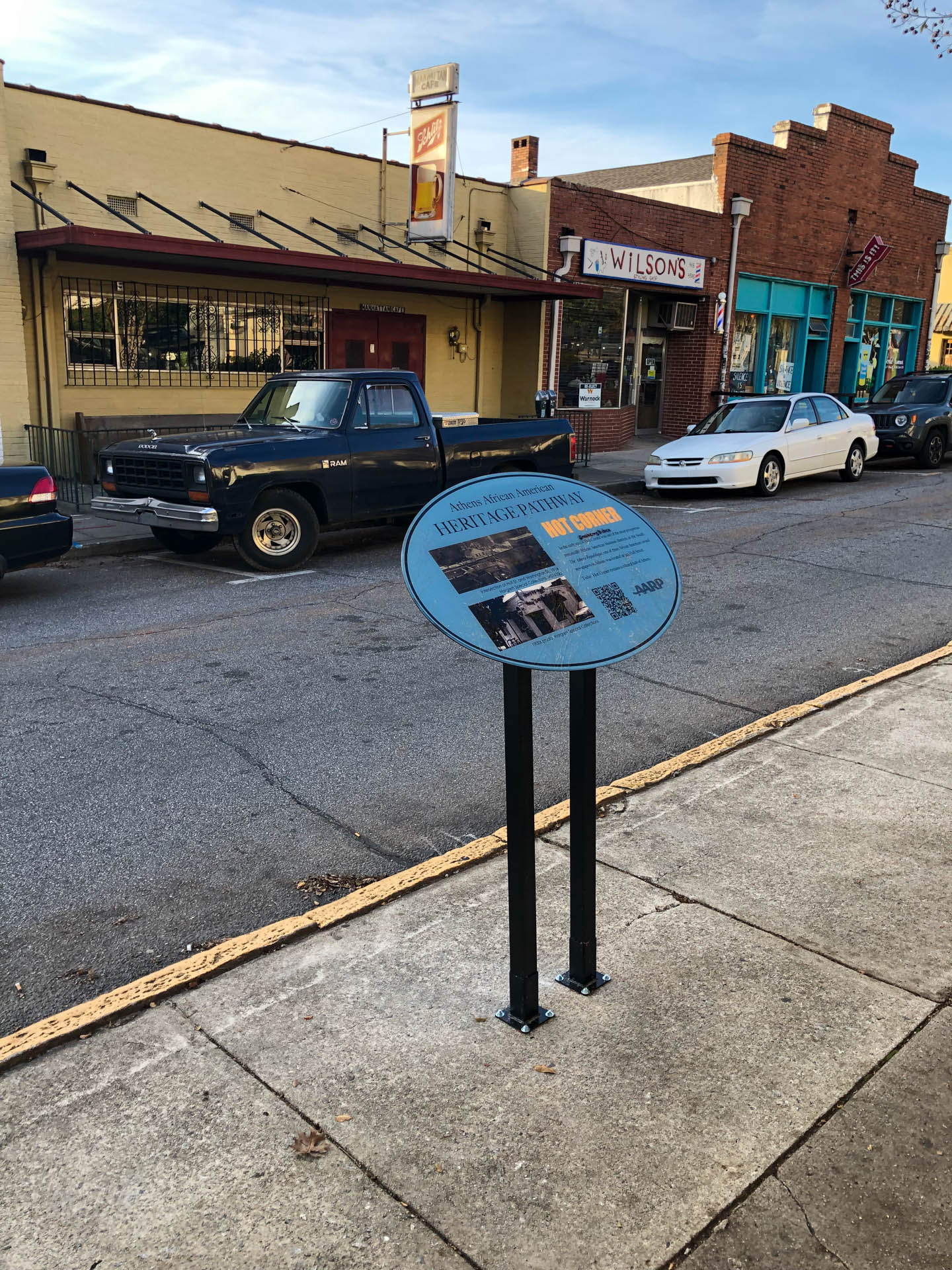
Lynn Green, the facility supervisor at the Morton Theatre, is proud of both the legacy of the Morton Building and Hot Corner.
“[In the early 20th century] between the Morton building, the Samaritan building, which used to sit next door to [the Morton building], Union Hall, which was across the street, and the businesses that occupied the buildings that still exist on Hull Street, … [this was] the center of African American commerce,” Green explains. “No matter what you needed, you could get it on the Hot Corner.”
Though historically black establishments such as Wilson’s Styling Shop and the Manhattan Cafe are still open, the demographic of Hot Corner has changed drastically over the past 50 years.
Green says that, ironically, desegregation led to the decline of many black-owned businesses on the Hot Corner.
“Once it opened up where African Americans could take their business to wherever they wanted to go, they were open to that and did,” Green explains. “White audiences and customers did not always reciprocate and patronize black established businesses.”
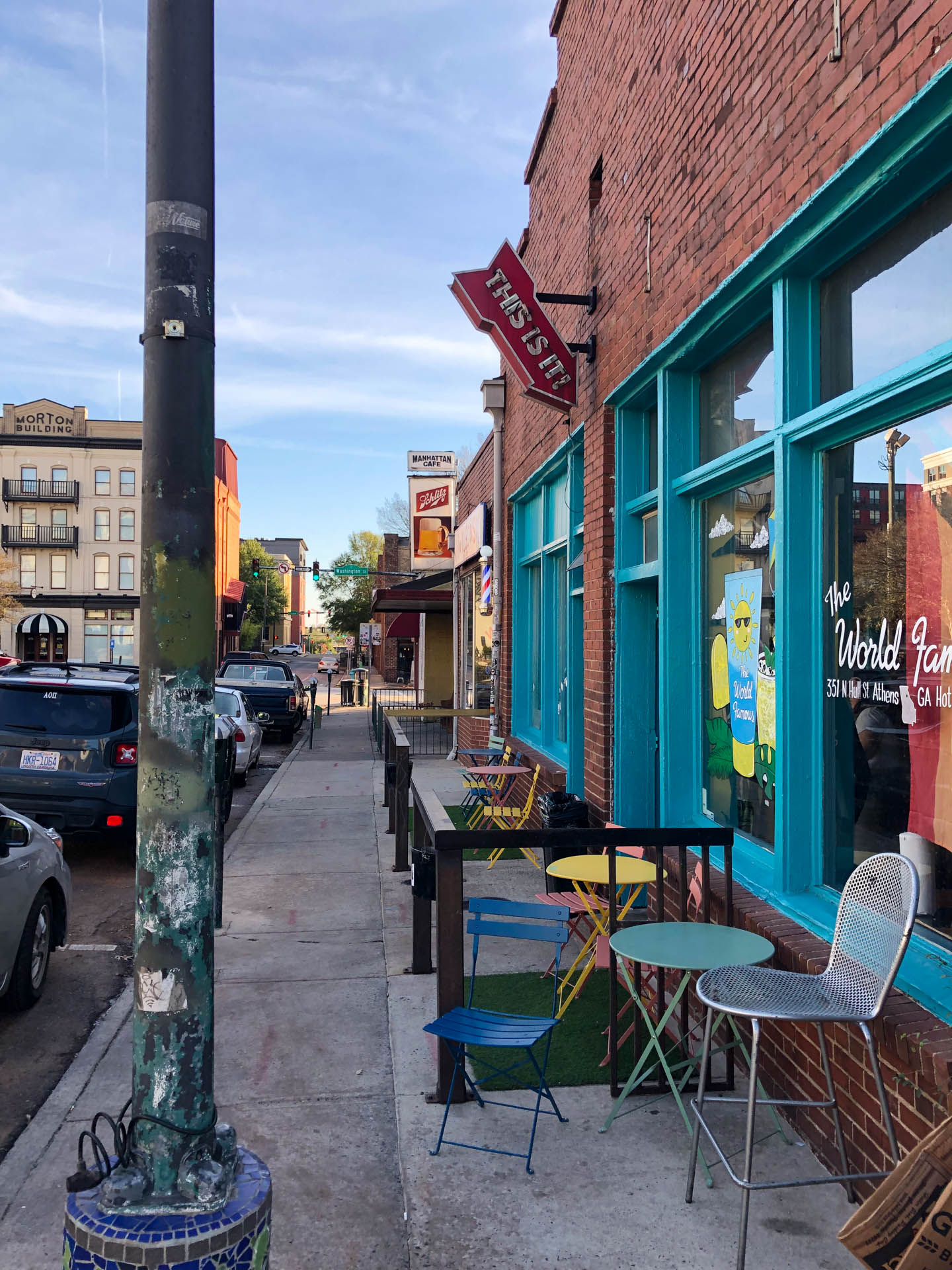
The Morton Building, constructed in 1910 by Monroe Bowers “Pink” Morton, stands as a testament to Athens’ long African-American heritage. Though closed for some years in the later 20th century, the theatre is now an active event space hosting plays, musical performances and even church services.
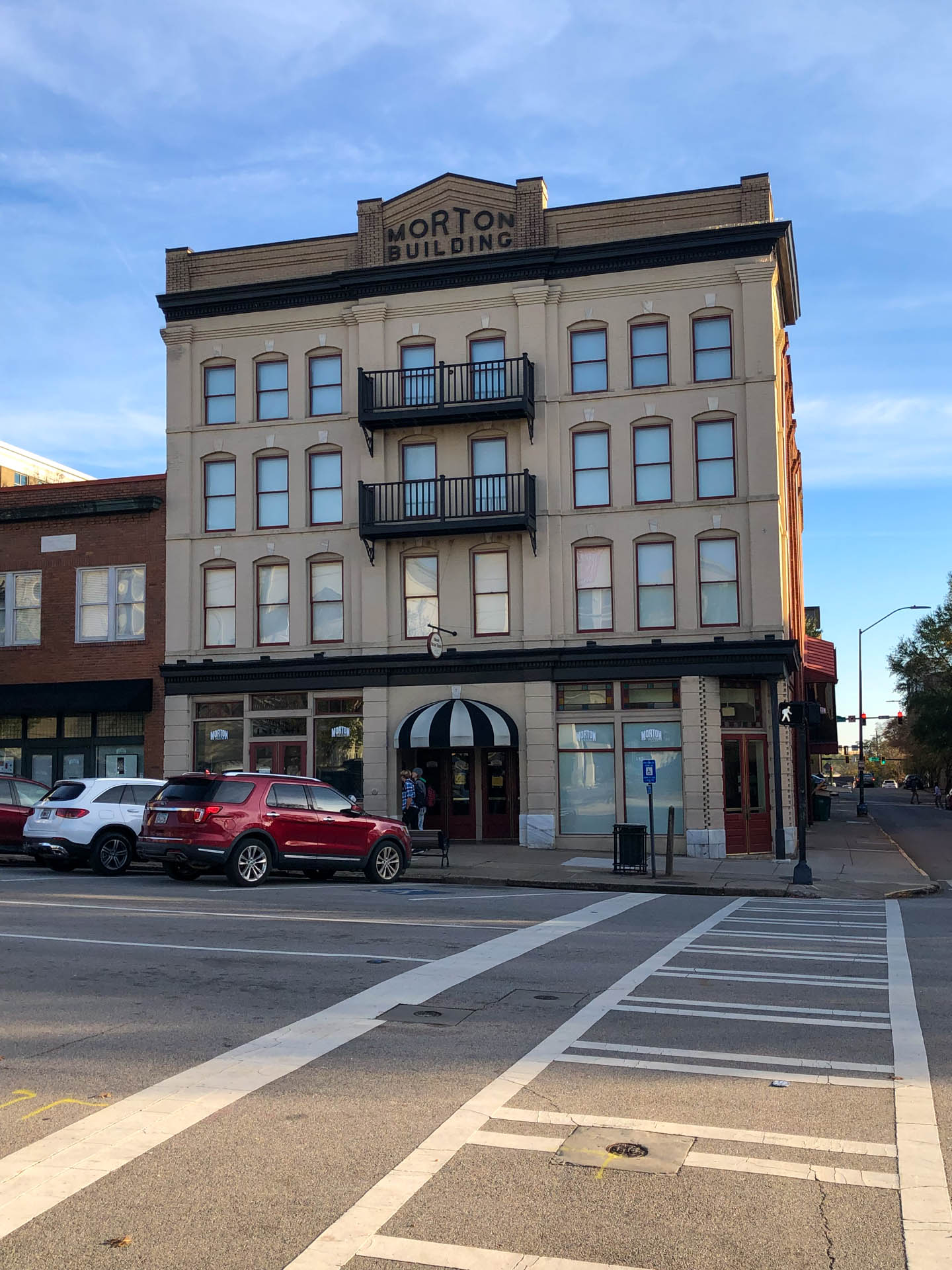
By the end of the African American Heritage Pathway, visitors have experienced a trek through Athens’ rich history.
As Dunphy puts it, people can learn about the distant days of “pre-emancipation, all the way up to the living and breathing Morton Theatre.”
Malcolm Montgomery is a fourth-year student majoring in journalism with a minor in theater.




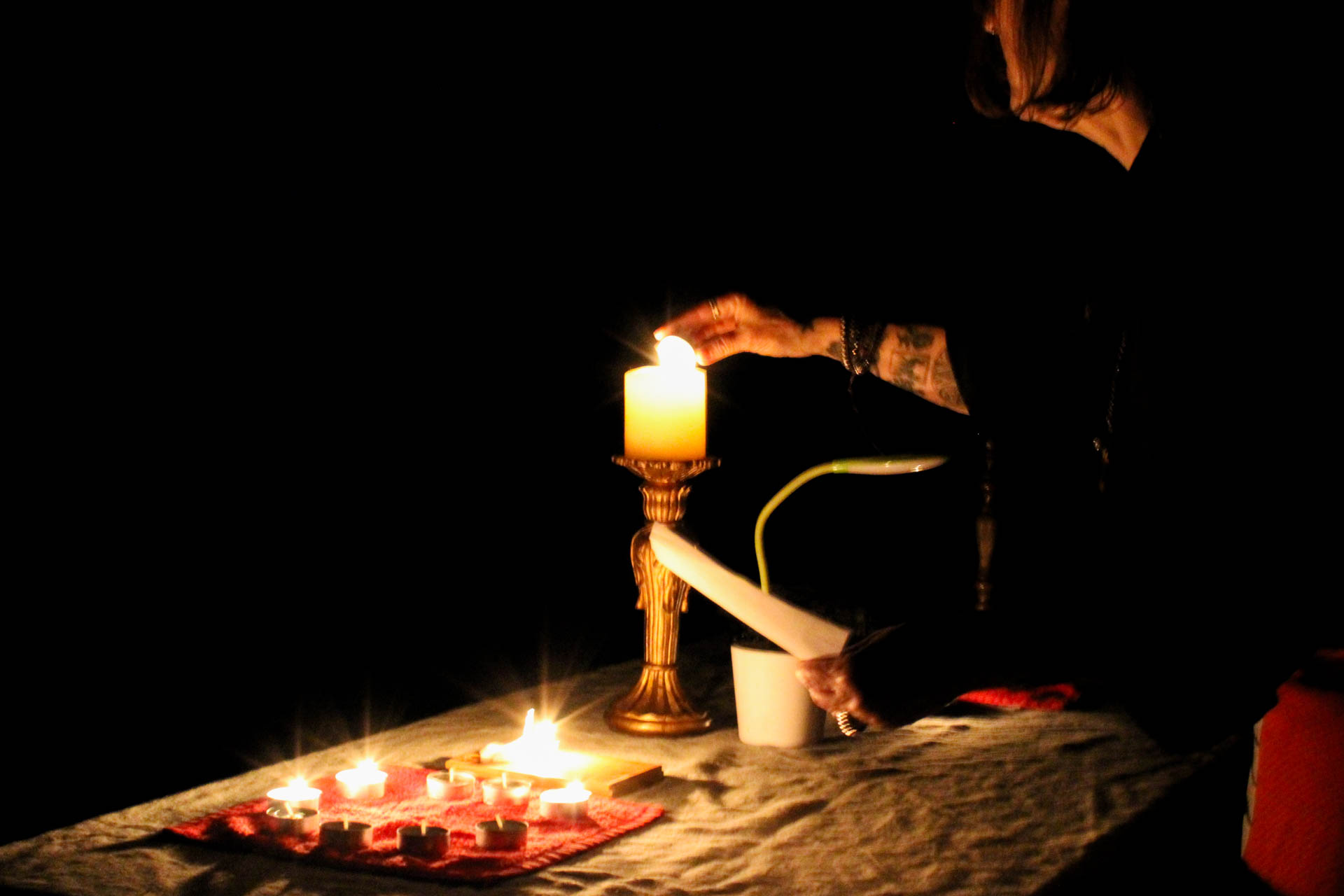

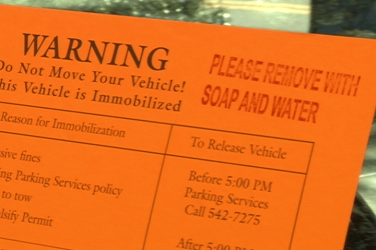


Show Comments (0)